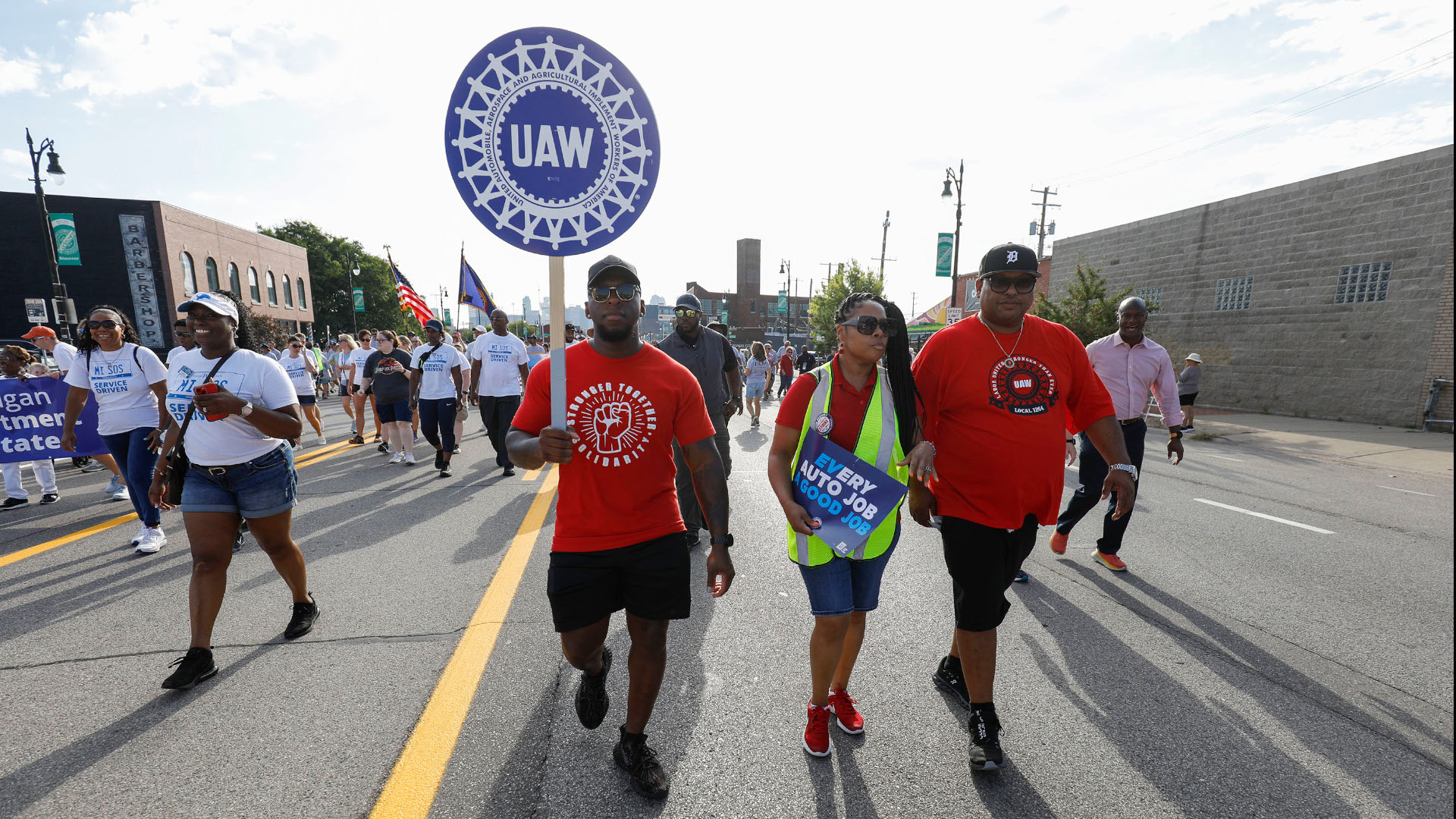

The United Auto Workers (UAW) union has been in a deadlock with America’s Big Three for some time. Thursday night saw the union’s declared deadline come to pass, with an agreement still unreached between workers and automakers. As promised, the UAW has announced strikes across multiple facilities in response.
UAW president Shawn Fain announced the union will strike GM’s Wentzville Assembly plant outside St. Louis; Stellantis’ Toledo Assembly Complex in Ohio; and Ford’s Michigan Assembly plant near Detroit as part of the first wave of action Friday. Those actions will involve about 13,000 of the group’s 145,000 members. Meanwhile, workers at other facilities are to continue working under expired contracts, with the UAW advising affected members in a document on what this entails on the shop floor. In the leadup to the announcement, UAW local unions across the nation shared posts regarding their willingness to join the action in earnest.
The move comes as part of the UAW’s new “Stand-Up Strike” strategy. As announced earlier this week, it involves UAW picking and choosing local unions to strike individual facilities. The aim is to keep automakers guessing as to which factories will strike, and when. It marks the first time in the union’s 88-year history that it has ever struck all three major U.S. automakers at the same time.
The strike could quickly broaden if automakers don’t reach an agreement with the union. Beyond the UAW expanding the strike to further factories, which it openly plans to do, other unions could also join the action. Notably, the International Brotherhood of Teamsters pledged solidarity to the union’s cause on Thursday, noting its members in the car-hauling sector. The Teamsters union does not cross picket lines, which could quickly frustrate logistics for automakers trying to keep operations online.
The UAW, citing huge profits made by the Big Three over the past decade, argues that automakers owe a fair share of that prosperity to the workers who make it happen. “They pretend the sky will fall if we get our fair share of the quarter of a trillion dollars the Big Three have made over the past decade,” Fain said in a recent video address.
As covered by ABC7 Chicago, the UAW, which insists on equal pay for equal work, has been calling for progression to top wages to be slashed to 90 days for new workers. The union is also demanding 36% raises over four years to make up for wages that have failed to keep pace with inflation, down from an earlier demand of 40%. Other demands include shorter working weeks, the restoration of cost-of-living pay raises, and pension changes.
On Thursday afternoon, GM announced it had put forth a new proposal to the UAW to attempt to head off strike action, as reported by WXYZ Detroit. However, it still fell far short of UAW demands. In particular, GM offered to cut progressions to top wages to four years, down from eight, while offering just 20% pay rises over a multi-year agreement. Stellantis and Ford have also submitted similar updated offers to the UAW recently, neither of which have satisfied the demands of workers.
“The key in any of this is to get to the table and talk through the issues,” GM CEO Mary Barra told CNBC on Friday morning, via Automotive News. “And that’s what we’ve been working to do.”
There still remains a large gulf between the demands of the UAW and what automakers are willing to offer to workers. The Big Three will be hoping to bring about a swift end to the strikes while holding as tightly on the purse strings as possible. Regardless, it appears that the union is willing to fight hard to secure a stronger package for its members against a backdrop of billions of dollars in corporate profits. For now, it appears that the wheels of industry, at least in some plants, will grind to a halt.
Got a tip? Let the author know: lewin@thedrive.com